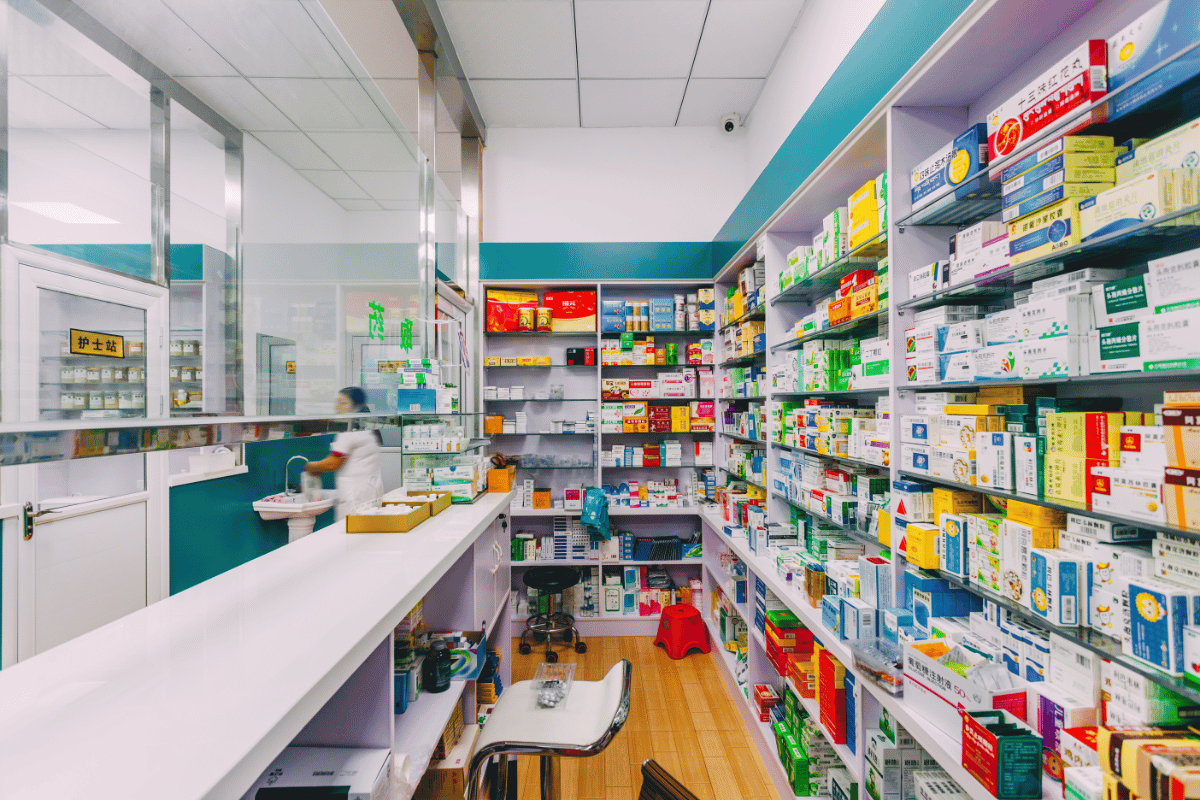Pharmacy Technician Course Online Free
Comprehensive Pharmacy Technician Course: A Free Guide for Beginners
Introduction
Pharmacy technicians play a critical role in healthcare, assisting pharmacists in preparing and dispensing medications, maintaining records, and ensuring that patients receive the correct prescriptions. The demand for pharmacy technicians continues to grow as the healthcare industry expands, offering a stable career path with opportunities for advancement.
This comprehensive, free online pharmacy technician course is designed for individuals interested in entering the field. It covers everything you need to know to start your career, from basic pharmaceutical knowledge to more advanced topics like pharmacy law, medication safety, and how to interact with patients. Whether you’re considering a career change or are just starting in healthcare, this guide will provide a strong foundation to pursue certification and employment as a pharmacy technician.
1. Introduction to the Role of a Pharmacy Technician
What Does a Pharmacy Technician Do?
Pharmacy technicians work under the supervision of licensed pharmacists to assist with the preparation and dispensing of medications. Their responsibilities include:
- Counting and labeling medications.
- Preparing intravenous medications (in hospital settings).
- Communicating with patients and healthcare providers to clarify prescriptions.
- Handling insurance claims and processing payments.
- Maintaining accurate medication records and managing inventory.
Pharmacy technicians often work in retail pharmacies, hospitals, nursing homes, or mail-order pharmacies. In each setting, their duties may vary slightly, but the core responsibility of ensuring safe and accurate medication dispensing remains the same.
Types of Pharmacy Technician Jobs
There are several different types of pharmacy technician roles, each with its own focus:
- Retail Pharmacy Technician: Works in a community pharmacy, assisting with prescription dispensing, customer service, and managing insurance claims.
- Hospital Pharmacy Technician: Prepares and dispenses medications in a hospital setting, including intravenous (IV) drugs, and maintains medication inventories for patient care.
- Compounding Pharmacy Technician: Specializes in preparing customized medications for patients, such as creating creams, ointments, or special dosage forms that are not commercially available.
- Nuclear Pharmacy Technician: Works with radioactive medications used in cancer treatments and diagnostic tests, handling these highly specialized drugs with extra care.
- Mail-Order Pharmacy Technician: Prepares and ships medications from a central pharmacy location to patients, often working with automated systems for large-scale prescription filling.
Skills Needed to Succeed
To excel as a pharmacy technician, certain skills are crucial:
- Attention to Detail: Accuracy is vital in ensuring the correct medication and dosage are dispensed to patients.
- Basic Math Skills: Pharmacy technicians need to perform dosage calculations and conversions regularly.
- Communication Skills: You’ll need to communicate clearly with pharmacists, patients, and healthcare providers.
- Organizational Skills: Managing multiple prescriptions and keeping accurate records requires strong organizational skills.
- Customer Service: Especially in retail settings, interacting with patients in a professional and compassionate manner is critical.
2. Basic Pharmaceutical Knowledge
Common Medications and Their Uses
As a pharmacy technician, you’ll need to become familiar with commonly prescribed medications and their uses. Here are some examples:
- Analgesics: Used to relieve pain. Common examples include ibuprofen (Advil) and acetaminophen (Tylenol).
- Antibiotics: Used to treat bacterial infections. Examples include amoxicillin and azithromycin (Z-Pak).
- Antihypertensives: Used to treat high blood pressure. Common examples include lisinopril and metoprolol.
- Antidepressants: Used to treat depression. Common examples include fluoxetine (Prozac) and sertraline (Zoloft).
As you progress in your training, you’ll also learn about specific drug categories such as antivirals, antifungals, and antipsychotics.
Drug Classifications
Medications are grouped into different classifications based on their therapeutic use and how they affect the body. Understanding drug classifications is important for pharmacy technicians to ensure proper medication dispensing and to assist pharmacists with patient questions.
Here are some basic classifications:
- Analgesics (Pain Relievers): Includes opioids and non-opioids.
- Antibiotics (Infection Fighters): Includes penicillins, cephalosporins, and macrolides.
- Antihypertensives (Blood Pressure Regulators): Includes beta-blockers, ACE inhibitors, and diuretics.
- Diuretics (Fluid Reducers): Used to treat conditions like hypertension and heart failure by promoting the excretion of excess fluid.
Over-the-Counter (OTC) vs. Prescription Medications
Pharmacy technicians need to understand the difference between OTC and prescription medications:
- OTC Medications: Available without a prescription. Examples include ibuprofen, allergy medications like diphenhydramine (Benadryl), and cold remedies.
- Prescription Medications: Require a doctor’s prescription. These medications may include antibiotics, controlled substances, and other treatments that need monitoring by a healthcare provider.
3. Pharmacy Law and Ethics
Overview of Pharmacy Law
Pharmacy technicians must adhere to strict regulations and laws governing the distribution of medications. Some of the key laws include:
- Controlled Substances Act (CSA): Regulates the manufacturing, importation, possession, and use of certain medications, particularly those with potential for abuse (e.g., opioids, sedatives).
- The Health Insurance Portability and Accountability Act (HIPAA): Ensures the privacy of patient health information and regulates how that information is shared.
- Food, Drug, and Cosmetic Act (FDCA): Governs the safety and efficacy of medications sold in the U.S. and ensures that drugs are properly labeled.
Understanding Prescription Regulations
Pharmacy technicians need to understand how prescriptions are regulated to prevent errors and illegal dispensing. For example, controlled substances are categorized into Schedules I-V, with Schedule I drugs (like heroin) being illegal and Schedule II drugs (like oxycodone) requiring strict regulation and monitoring.
Best practices for handling prescriptions:
- Verify the prescriber’s credentials.
- Check for possible drug interactions or contraindications.
- Ensure the prescription is dated and signed by the prescriber.
Ethics in the Pharmacy
Ethical behavior is vital in the pharmacy field. Pharmacy technicians must prioritize patient safety and confidentiality. Some ethical guidelines include:
- Confidentiality: Never share a patient’s personal or medical information without their consent.
- Accuracy: Always double-check prescriptions and dosage calculations to prevent medication errors.
- Integrity: Report any discrepancies or concerns to the supervising pharmacist.
4. Prescription Processing and Interpretation
Reading and Interpreting Prescriptions
One of the core responsibilities of a pharmacy technician is accurately reading and processing prescriptions. Prescriptions typically include:
- Patient Information: Name, date of birth, and contact details.
- Drug Name: Generic or brand name of the medication.
- Dosage: Amount of the drug to be taken (e.g., 500 mg).
- Route of Administration: How the drug is taken (e.g., orally, intravenously).
- Frequency: How often the medication is taken (e.g., twice daily).
- Quantity: The total amount of medication to be dispensed.
Understanding Drug Labels
Pharmacy technicians need to ensure that drug labels are clear and accurate. Labels typically include:
- The patient’s name and prescription details.
- Dosage instructions.
- Warning labels (e.g., “Do not operate heavy machinery”).
- Expiration dates and storage instructions.
Electronic Prescription Systems
Many pharmacies use electronic prescription systems (e-prescribing) to streamline the process of prescription entry. E-prescribing reduces errors caused by handwriting issues and helps pharmacists and technicians verify insurance coverage, track medication history, and prevent drug interactions.
5. Pharmacy Calculations
Basic Math for Pharmacy Technicians
Pharmacy technicians need a solid grasp of basic math to perform dosage calculations, conversions, and inventory management. Key concepts include:
- Addition, subtraction, multiplication, and division: Used for managing inventory and calculating doses.
- Decimals and fractions: Important when measuring liquid medications or dividing doses.
Dosage Calculations
Accurate dosage calculation is crucial to ensure patients receive the correct amount of medication. Pharmacy technicians must be able to calculate:
- Doses based on weight: Some medications are dosed according to the patient’s weight (e.g., mg/kg).
- Volume of liquid medications: Converting between milliliters (mL) and teaspoons (tsp), for example.
Conversions and Measurements
Understanding conversions between different units of measurement is essential. Common conversions include:
- Metric System: Grams (g), milligrams (mg), liters (L), and milliliters (mL).
- Household System: Teaspoons (tsp), tablespoons (tbsp), ounces (oz), and cups.
Example conversions: 1 teaspoon (tsp) = 5 mL 1 tablespoon (tbsp) = 15 mL 1 ounce (oz) = 30 mL
6. Medication Safety and Error Prevention
Best Practices for Medication Dispensing
Medication safety is the primary responsibility of pharmacy technicians. To ensure safe dispensing:
- Always double-check prescriptions for errors.
- Confirm the patient’s name and date of birth.
- Use barcode scanning technology to verify medications.
Identifying and Preventing Medication Errors
Common medication errors include:
- Wrong dosage: Dispensing too much or too little of a medication.
- Wrong patient: Dispensing medication to the wrong patient.
- Incorrect labeling: Providing incorrect instructions for how to take the medication.
Pharmacy technicians must carefully check prescriptions against the patient’s medical history, allergies, and other medications to prevent adverse reactions.
Understanding Medication Warnings and Interactions
Pharmacy technicians should familiarize themselves with common medication warnings, such as:
- Do not take with alcohol.
- Take with food.
- May cause drowsiness.
In addition, understanding drug interactions is vital. For example, combining certain medications, like blood thinners and NSAIDs (nonsteroidal anti-inflammatory drugs), can increase the risk of bleeding.
7. Pharmacy Operations
Inventory Management in the Pharmacy
Pharmacy technicians are responsible for maintaining adequate stock levels of medications, ensuring that expired drugs are removed, and managing inventory to avoid shortages or overstocking.
Key tasks:
- Checking expiration dates regularly.
- Rotating stock so that the oldest medications are dispensed first.
- Ordering new supplies before stock runs out.
Recordkeeping and Documentation
Accurate recordkeeping is critical for legal compliance and patient safety. Pharmacy technicians must maintain detailed records of all medications dispensed, as well as any communications with healthcare providers and patients.
Working with Insurance Companies
Pharmacy technicians often serve as the liaison between the pharmacy and insurance companies. This involves verifying insurance coverage, handling rejected claims, and explaining copays and out-of-pocket costs to patients.
8. Customer Service and Patient Interaction
Communicating with Patients and Healthcare Providers
Pharmacy technicians must communicate effectively with patients, doctors, and pharmacists to ensure that medications are dispensed safely and that any questions or concerns are addressed.
Key communication skills:
- Active listening: Pay attention to patient concerns and questions.
- Clear explanations: Provide clear instructions on how to take medications, potential side effects, and storage instructions.
Managing Confidential Patient Information (HIPAA)
Pharmacy technicians must comply with the Health Insurance Portability and Accountability Act (HIPAA), which ensures the privacy of patient information. This means safeguarding patient records and only discussing patient information with authorized healthcare professionals.
Handling Difficult Customer Situations
In retail settings, pharmacy technicians may encounter frustrated or upset customers, particularly when dealing with insurance issues or medication shortages. Handling these situations professionally and empathetically is key to maintaining good customer relations.
9. Advanced Topics and Career Development
Specializations in Pharmacy (Compounding, Nuclear, Hospital)
As you gain experience, you may wish to specialize in a specific area of pharmacy. Some advanced roles include:
- Compounding Technician: Prepares customized medications, including creams, ointments, and liquid formulations.
- Nuclear Pharmacy Technician: Prepares and handles radioactive drugs used in treatments and diagnostic tests.
- Hospital Pharmacy Technician: Works in a hospital pharmacy preparing medications, often including intravenous solutions, for inpatients.
Certification and Licensing for Pharmacy Technicians
While some states require certification to work as a pharmacy technician, obtaining certification can improve your job prospects and earning potential. The Pharmacy Technician Certification Board (PTCB) and National Healthcareer Association (NHA) both offer certification exams.
Steps to certification:
- Complete a pharmacy technician training program.
- Gain hands-on experience through internships or externships.
- Pass the certification exam (e.g., the PTCB exam).
Job Search and Career Advancement Tips
To begin your career as a pharmacy technician:
- Create a strong resume: Highlight relevant skills such as customer service, knowledge of pharmaceuticals, and experience with inventory management.
- Gain experience: Volunteer or intern in a pharmacy to build hands-on experience.
- Consider specialization: Pursue additional certifications in areas like sterile compounding or nuclear pharmacy to advance your career.
Conclusion
Becoming a pharmacy technician offers a rewarding career path with a clear role in the healthcare system. This free online course provides the foundational knowledge and skills needed to start your journey. By learning the basics of pharmaceutical knowledge, pharmacy law, and prescription processing, you’ll be well-prepared to pursue certification and employment.
Whether you’re working in a retail setting, hospital, or specialized pharmacy, the skills and knowledge covered in this course will help you succeed. With the right training, certification, and dedication, you can build a stable and fulfilling career as a pharmacy technician.
Good luck on your journey to becoming a certified pharmacy technician!




